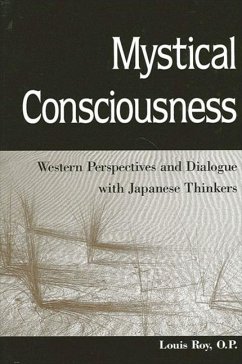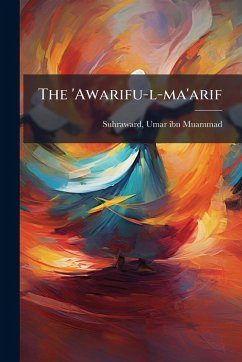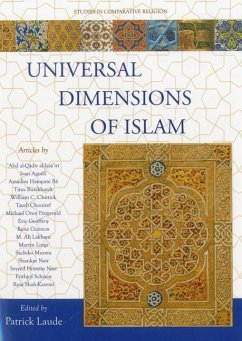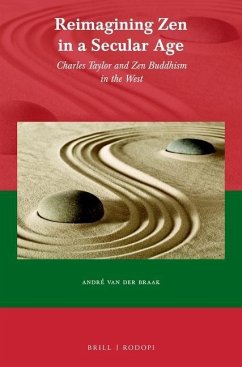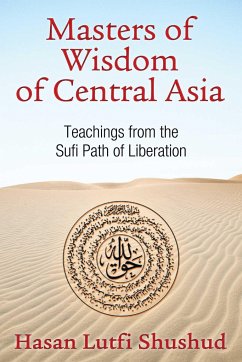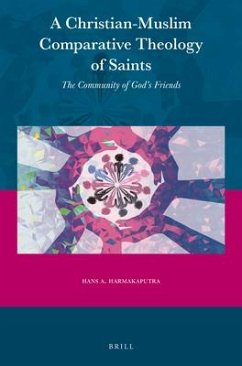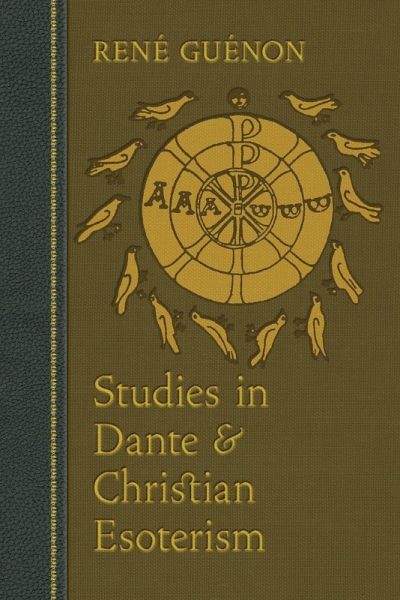
Studies in Dante and Christian Esoterism

PAYBACK Punkte
11 °P sammeln!
René Guénon (1886-1951) was one of the great luminaries of the twentieth century. His extensive writings, now finally available in English, are a providential treasure-trove for the modern seeker: while pointing ceaselessly to the perennial wisdom found in past cultures ranging from the Shamanistic to the Indian and Chinese, the Hellenic and Judaic, the Christian and Islamic, and including also Alchemy, Hermeticism, and other esoteric currents, they direct the reader also to the deepest level of religious praxis, emphasizing the need for affiliation with a revealed tradition even while ackno...
René Guénon (1886-1951) was one of the great luminaries of the twentieth century. His extensive writings, now finally available in English, are a providential treasure-trove for the modern seeker: while pointing ceaselessly to the perennial wisdom found in past cultures ranging from the Shamanistic to the Indian and Chinese, the Hellenic and Judaic, the Christian and Islamic, and including also Alchemy, Hermeticism, and other esoteric currents, they direct the reader also to the deepest level of religious praxis, emphasizing the need for affiliation with a revealed tradition even while acknowledging the final identity of all spiritual paths as they approach the summit of spiritual realization. One of René Guénon's lifelong quests was to discover, or revive, the esoteric, initiatory dimension of the Christian tradition. Especially since the Renaissance, some in Western Christendom have suspected that the deeper dimension of their tradition has somehow been lost, and have therefore sought to discover, or create, an "esoteric" or "initiatic" Christianity. In the middle of the nineteenth century two scholars, Gabriele Rossetti and Eugène Aroux, pointed to certain esoteric meanings in the work of Dante Alighieri, notably The Divine Comedy. Partly based on their scholarship, Guénon in 1925 published The Esoterism of Dante. From the theses of Rosetti and Aroux, Guénon retains only those that prove the existence of such hidden meanings; but he also makes clear that esoterism is not "heresy" and that a doctrine reserved for an elite can be superimposed on the teaching given the faithful without standing in opposition to it. A collection of related articles was published posthumously in 1954 under the title Insights into Christian Esoterism. In these articles Guénon undertakes to establish that the three parts of The Divine Comedy represent the stages of initiatic realization, exploring the parallels between the symbolism of the Commedia and that of Freemasonry, Rosicrucianism, and Christian Hermeticism, and further illustrating Dante's knowledge of traditional sciences unknown to the moderns: the sciences of numbers, cosmic cycles, and sacred astrology. Guénon also touches here on the all-important question of Medieval esoterism and discusses the role of sacred languages and the principle of initiation in the Christian tradition, as well as such esoteric Christian themes and organizations as the Holy Grail, the Guardians of the Holy Land, the Sacred Heart, the Fedeli d'Amore and the 'Courts of Love', and the Secret Language of Dante. The present volume brings both works cited above together with a separate study on Saint Bernard. "It was Guénon who taught me to seek and love the truth above all else, and to be unsatisfied with anything else." -Fr Seraphim Rose "Encountering Guénon's work is akin to being struck by lightning: a dazzling initiation into a hitherto unknown way of seeing reality that reclaims the original integrity of the human condition." -Samuel Bendeck Sotillos




